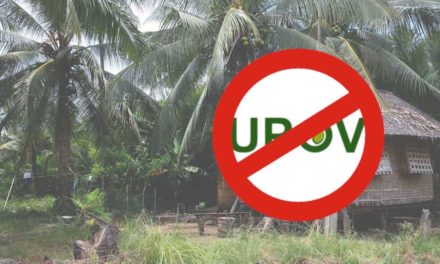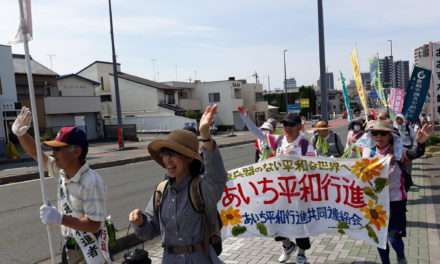by Herbert Docena*
Funerals are not so much for the dead as for us who have to go on living.
The dead have passed on; they can no longer hear us weeping. It is we—we who must scatter the flowers over their graves—who have to be comforted for our loss and who have to confront what lies ahead.
Cory has left but it is we who now have to come to terms with her contradictory legacies. Contrary to the impression conveyed by the media’s almost hagiographic coverage of her passing, the burst of emotions that followed Cory’s death has not simply been that of bereavement and pure adulation.
Indeed, how many of those who queued for hours through the cold raining nights nursed a deep disappointment at Cory’s presidency but walked up solemnly, full of gratitude, to her coffin nonetheless? Of those who walked out of their offices to bid goodbye as Cory’s coffin passed, who did not harbor a lingering sense of waste because of what Cory has squandered—but flashed the “Laban” sign without hesitation? How many prayed for Cory’s soul—but also prayed for the souls of the farmers mowed down with bullets in Mendiola in 1989?
Losing someone is not easy; more so when our conflicted feelings towards the departed could not be so easily reconciled, even by death. On the one hand, Cory inspired us to believe—by leading the movement that toppled the dictatorship—that what we often come to accept as impossible may actually be possible through our actions. On the other hand, Cory also demonstrated—by squandering a historic opportunity to push for meaningful social reforms—how power can make the possible impossible by fiat.
In ending tyranny and, later on, foiling right-wing militarists from taking power, Cory averted the worst. But, by pursuing policies that restored the power of oligarchs and that abandoned society to the whims of the powerful, she also prevented what could have been better alternatives for millions of Filipinos. Cory ushered back democracy but, at many critical moments, she stood in the way of freedom.
After the EDSA revolt, when the passage of a land reform program became a real possibility, Cory instead chose to exempt her family’s hacienda, thereby fatally weakening a program that could have freed millions of farmers from generations of bondage. Corruption is not something usually associated with Cory but if corruption is to be objectively defined as the use of state power to further personal interests, then Cory’s action towards land reforms ranks up there as a monumental, if less obvious, case of corruption. Today, tens of thousands of peasants remain consigned to a life of poverty and misery as a result of this historic decision. Charity is not what they need, but it is a basic Catholic virtue of which Cory proved incapable at that moment when it could have made a lasting difference.
At the height of the negotiations over the US bases in the late 80s, Mt Pinatubo erupted. Zambales residents pleaded with the US military to allow them to pass through the Subic base in order to expedite their evacuation. But the US military refused, thereby cementing growing opposition to the bases, already fired up by cases of abuse suffered by many Filipinos at the hands of US soldiers. And yet, on whose side did Cory march—in one of the rare instances when a sitting president actually joined a public mobilization? On the side of those pleading with the American troops to stay on.
Cory’s failings were historic but her choices, it must be said, were far from easy. Indeed, few have been burdened with a cascade of difficult choices: A widow given the choice to lead an uprising against an entrenched dictator or to continue living in comfortable anonymity. A haciendera challenged to give up her family’s landholdings to set an example. An embattled president who had the choice to pander to the right-wing or to face them down. If we are judged not just by what we do but by what we have to give up, then some of Cory’s choices could readily qualify as acts of heroism. Her other choices, however, have only raised the need for even more of it.
And yet, despite our disillusionment, no other death has moved us to spill out into the streets in such great numbers in recent years. Perhaps it’s not just to say goodbye but to partake in a collective act of grieving—not so much for the dead but for ourselves. Cast between the tyrants and thieves that preceded and succeeded her, Cory’s virtues—her simplicity, her sincerity—seem even more precious and her faults minor—maybe even forgivable?—for a people who are now left to deal with so much worse.
Pity the nation that needs heroes, goes the cliché; pity the nation that has lost one. We weep because we know that our continuing dependence on and continuing need for heroes speaks of our continuing tragedy as a people.
But as we pick up the pieces, just as we did after we buried Cory’s murdered husband Ninoy, we are left with no choice but to confront what lies ahead. In so doing, we are reminded of what Cory herself has demonstrated in those days at EDSA that changed hers and our country’s destiny: that she wouldn’t be there, that it all wouldn’t have happened, if the people weren’t there with her. Without Cory, we may be on our own and yet, as we kept assuring Ninoy, we are not alone.
Funerals are not so much for the dead as for us who have to go on fighting.
Herbert Docena is a former Benigno S. Aquino Jr Foundation scholar.









